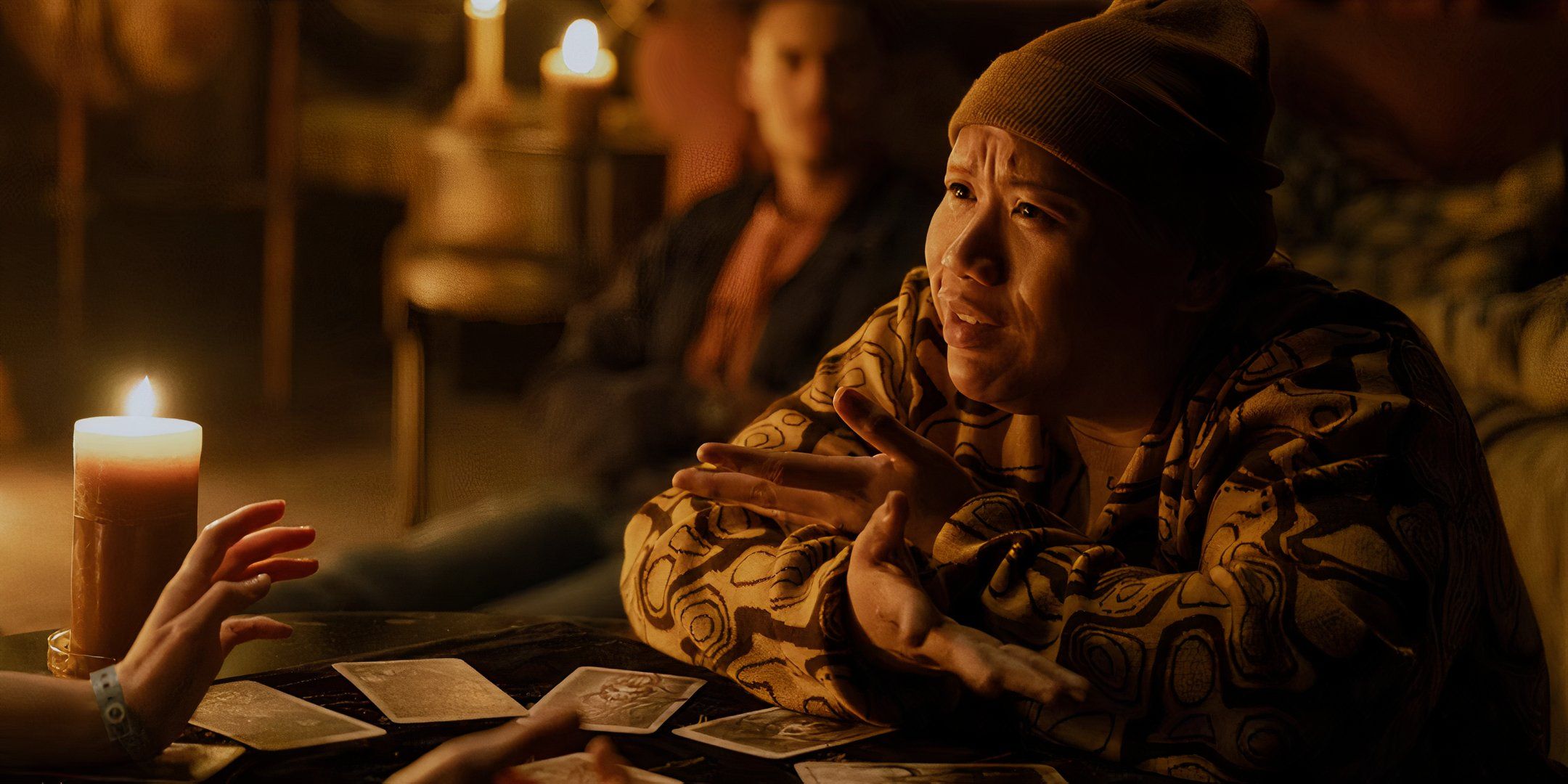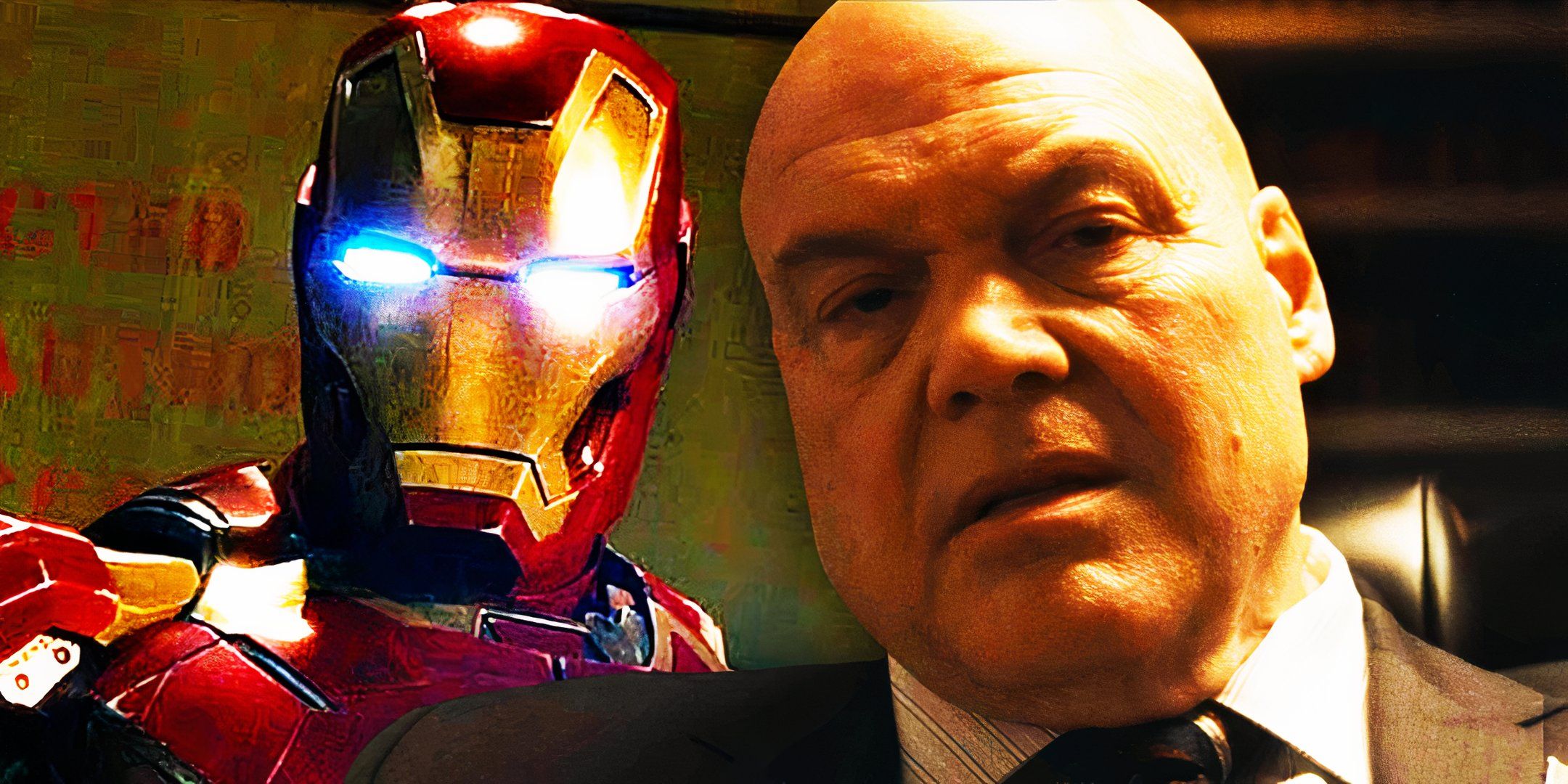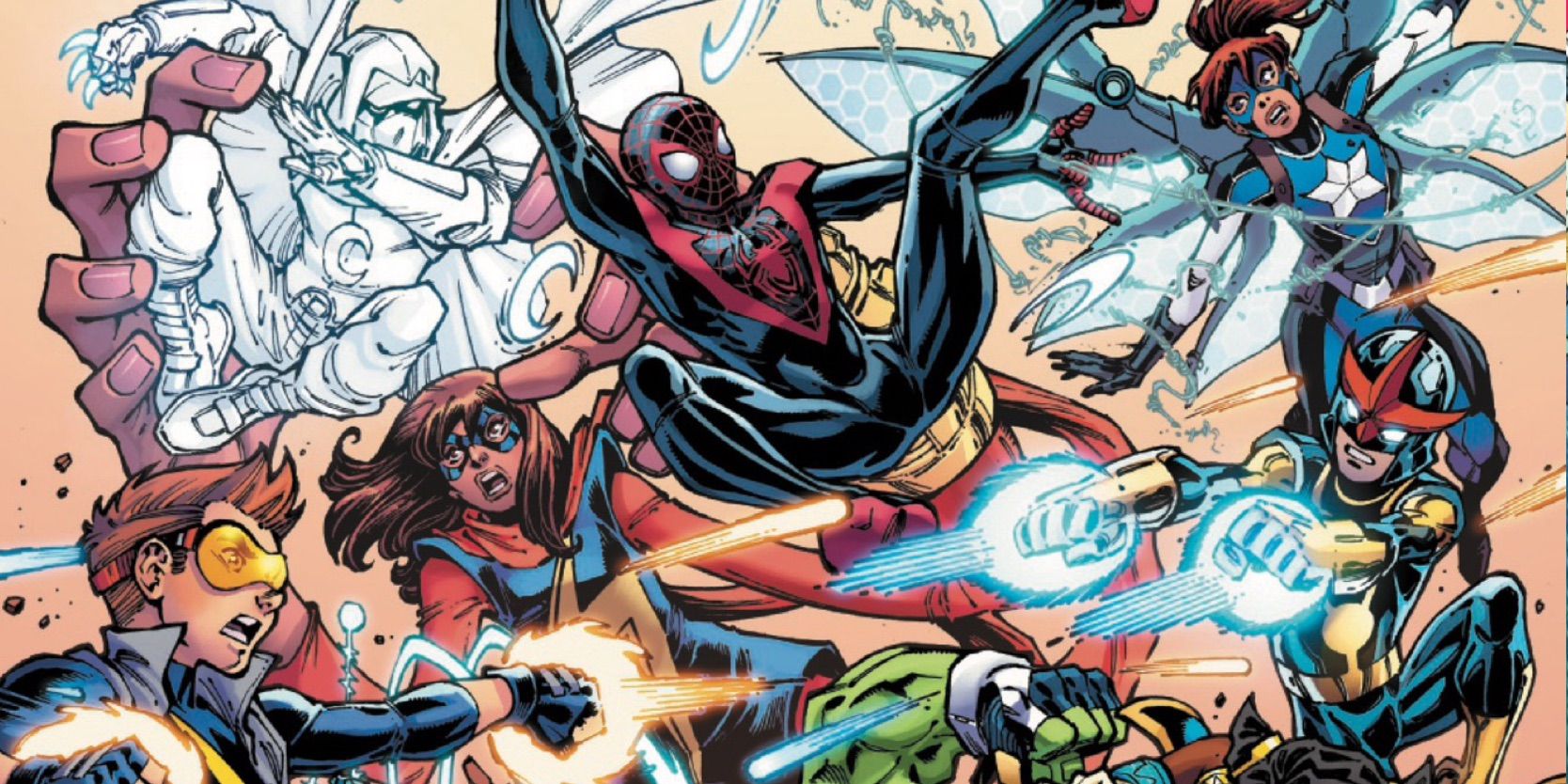Tarot's Final Paxton Reveal Is So Unsatisfying To Me
Summary Paxton's survival undermines Tarot's premise of unstoppable fate, turning the ending into a disappointing twist.
The comedic finale of Tarot falls flat, with Paxton's survival undercutting the threat of the antagonist.
Killing off the most likable character would have added a darker edge to Tarot's ending, enhancing the overall impact.
Tarot’s surprising reveal that another one of its characters survives to the end was one of the things that annoyed me most about the film. I went into this teen slasher movie with high expectations, despite knowing that Tarot earned one of 2024’s worst Rotten Tomatoes scores. Its concept was strong: the Major Arcana comes to life and doles thematic deaths upon a group of teenagers who messed with the wrong cards. Tarot set itself up as Final Destination with an astrological twist, and the cool visuals lived up to its promise.
That’s the best thing I can say about Tarot, because everything else, from the cliché dialogue to the out-of-place humor, was disappointing. Paxton’s survival was the last straw for me. The final scene completely undermined Tarot’s ending explanation that those who managed to outrun fate did so because they faced their greatest flaws. It was my understanding that the Astrologer was giving these students a brutal lesson in personal growth, but if it was a test, Jacob Batalon’s character flunked it. Tarot would have made more sense, and would have been more effective, if he'd stayed dead.
Related 10 Horror Movies That Genuinely Terrified Me, And I Usually Don't Get Scared Coming from someone who isn't easily scared, these horror movies genuinely terrified me, proving how deeply unnerving the genre can be.
Tarot's Explanation For How Paxton Is Alive At The End Is Disappointing
Paxton's Survival Ruins The Film's Premise
Paxton’s survival would still have been disappointing if it had never been explained, but a bit of ambiguity might have saved Tarot’s storyline. The explanation the final scene provides makes the reveal worse. Paxton only escapes The Fool because his roommate happens to come across him in the elevator where he has been trapped – apparently, not so effectively. Interruption by a hapless bystander seems to be all it takes to get these arcane assailants to abandon their pursuit. If only the rest of the group had known this, they might have avoided their brutal deaths by sticking to public spaces and not walking home alone at night.
My main issue with Paxton's survival is that it completely undoes Tarot's premise. The film's supernatural antagonist is supposed to be terrifying because her vengeance is unstoppable. The Astrologer embodies her cursed Tarot deck and becomes a metaphor for irreversible fate. That's supposedly Tarot's theme: you can't stop the wheels of fate once they are set in motion. Paxton getting caught in the elevator fulfills the omen he was told at his reading. With every other Tarot death, there is no escape at this point. Unlike his fellow survivors, Paxton never has an epiphany moment – his survival goes against the rules that the film worked to establish.
Related Tarot Review: Thin Characters & Intermittent Frights Make For A Dull Horror Movie Experience There are just too many elements that ultimately hinder Tarot's execution, from its thin characterizations to its repetitive, dull plot.
I Wish Tarot Would've Just Killed Jacob Batalon's Paxton
That Comic Finale Just Doesn't Work
Close
My feeling that Paxton should have died isn't because I disliked his character. For me, Paxton stood out as the most likable in a bland bunch, mainly because Jacob Batalon is a talented comic actor whose line delivery gave me some genuine laughs. His miraculous survival is an attempt to end the film on a comic note, but like most of the attempts at comedy in Tarot, it doesn't land because of the weird tonal shift. Paxton's reappearance, grinning triumphantly and laughing as he tells his friends how he managed to escape, comes too quickly after the high-stakes finale.
Tarot would have been more effective if it had killed off its most likable character. It would have marked the transition into a darker final act nicely, the loss of humor representing the loss of hope for the protagonists. Tarot's humorous ending scene might be its way of poking fun at horror tropes, since it undercuts the weary victory of the other two survivors. But I don't think adding another surprise survivor was the best way to do this. The Cabin In The Woods' big twist is that nobody survives – that’s a teen slasher satire that's actually successful.
The only thing that Paxton's survival manages to undermine is the threat of Tarot's antagonist.
The only thing that Paxton's survival manages to undermine is the threat of Tarot's antagonist. According to the film's own logic, there's no reason he should have escaped his encounter with the Astrologer. It detracts from her power, and makes the deaths of his unluckier friends feel rather silly. Tarot's blend of comedy and horror is ultimately less effective than that of other genre hits. The three survivors joke around so easily after their ordeal that they appear unaffected by the violent deaths of their closest friends. Thematically, emotionally, and comedically, Tarot’s end is universally unsatisfying – typified by Paxton's fate.











COMMENTS